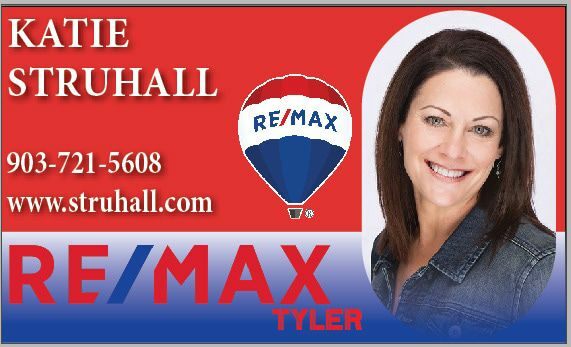Early voting starts as Texans decide on 10 amendments to state constitution
All registered voters of Cherokee County have the chance to put their two cents in on 10 big issues during this year’s state constitutional amendment election.
“During the 86th Legislature, the Texas House and Senate proposed 10 separate amendments to the Texas Constitution,” Rep. Travis Clardy said. “In order to be placed on the ballot for your consideration, each of the proposed amendments first passed the Senate and the House with a 2/3 vote according to Constitutional requirements.
“Many folks have asked for my recommendations on the propositions. That’s easy this election year because I recommend a ‘yes’ vote for all of them.”
Early voting started in Cherokee County on Monday and will continue through Friday, Nov. 1. Early voting locations are open 8 a.m. to 5 p.m., Monday-Friday at the Cherokee County Election Office, 138 W. Fifth St., Rusk; the Jacksonville Public Library, 502 S. Jackson St., Jacksonville; and The River Church, 595 Marcus St., Alto. The general election will be held 7 a.m. to 7 p.m., Tuesday, Nov. 5. Visit the Cherokee County Elections Department webpage at the county’s website, co.cherokee.tx.us, for a list of polling locations that will be open on Nov. 5.
Texas voters are required to bring a valid form of ID with them to the polls. There are seven forms of ID you can use: a driver’s license, a U.S. passport, a U.S. military photo ID, a Texas Personal Identification card, a photo U.S. citizenship certificate, or a Texas Election Identification Certificate.
“If you do not have a photo ID or cannot reasonably obtain one, you may still vote upon signing a form and presenting an original copy of your Voter Registration Card, certified birth certificate, current utility bill, bank statement, government check or paycheck with your name and address on it,” according to the website, votetexas.com.
Propositions on the state ballot are:
Proposition 1
How it will read on the ballot: “The constitutional amendment permitting a person to hold more than one office as a municipal judge at the same time.”
What it means: Municipal court judges adjudicate city ordinance violations and certain misdemeanor criminal cases. The proposition would permit elected municipal court judges to serve multiple municipalities at the same time. Currently, only appointed municipal court judges — who make up more than 95 percent of the state’s municipal court judges, according the House Research Organization — can serve multiple jurisdictions at the same time, making it more challenging for small and rural cities to find qualified candidates, some argue.
Forrest Phifer, who is currently the appointed municipal judge for the cities of Rusk, Alto and Cuney, said, “Municipal courts are typically the only courtroom the majority of people are going to see. We need quality people in those positions. Appointed judges are able to serve more than one municipality already. Or course people are going to vote their own minds, but I see no reason to deny elected judges the right to serve in the same capacity.”
Proposition 2
How it will read on the ballot: “The constitutional amendment providing for the issuance of additional general obligation bonds by the Texas Water Development Board in an amount not to exceed $200 million to provide financial assistance for the development of certain projects in economically distressed areas.
Proposition 3
How it will read on the ballot: “The constitutional amendment authorizing the legislature to provide for a temporary exemption from ad valorem taxation of a portion of the appraised value of certain property damaged by a disaster.”
What it means: This would allow the Legislature to create temporary property tax exemptions for people with property damaged in governor-declared disaster areas. The Legislature would be able to pass laws determining the eligibility requirements for exemptions, as well as the duration and amount of any write-offs.
“An exemption in the cases where the governor has declared a disaster would provide a much more efficient means of addressing problems than current law does,” Cherokee County Chief Appraiser Lee Flowers said.
Proposition 4
How it will read on the ballot: “The constitutional amendment prohibiting the imposition of an individual income tax, including a tax on an individual’s share of partnership and unincorporated association income.”
What it means: This would make it more challenging for future lawmakers to enact a personal state income tax, requiring support from two-thirds of the House and Senate and a majority of Texas voters. Currently, the state Constitution requires that any proposal be approved a majority of lawmakers in the House and Senate and a majority of voters in a state-wide referendum.
Proposition 5
How it will read on the ballot: “The constitutional amendment dedicating the revenue received from the existing state sales and use taxes that are imposed on sporting goods to the Texas Parks and Wildlife Department and the Texas Historical Commission to protect Texas’ natural areas, water quality, and history by acquiring, managing, and improving state and local parks and historic sites while not increasing the rate of the state sales and use taxes.”
What it means: It would earmark all revenue from the sporting goods sales tax toward the state parks and wildlife department and historic commission, as intended when the tax was created in 1993. In the past, the Legislature has not appropriated all available tax revenue to TPWD and THC.
“Historically only 40 percent of the money has been spent for this purpose,” the Texas Conservation Alliance stated in a mailed flyer concerning Prop 5. “The rest has gone into the state’s general fund. Proposition 5 will provide an estimated $183 million in state and local parks and historic sites in its first year. This proposition will not affect hunting and fishing programs, which are separately funded. No new taxes will be required.”
Proposition 6
How it will read on the ballot: “The constitutional amendment authorizing the legislature to increase by $3 billion the maximum bond amount authorized for the Cancer Prevention and Research Institute of Texas.”
What it means: This would allow the Legislature to double the maximum amount of bonds it can issue on behalf of the Cancer Prevention and Research Institute of Texas, to $6 billion.
“To date, CPRIT has awarded $2.4 billion in grants to Texas research institutions and organizations through its academic research, prevention and product development research programs. CPRIT has recruited 181 distinguished researchers, supported the establishments, expansion or relocation of 36 companies to Texas and generated more than $3 billion in additional public and private investment. CPRIT funding has advanced scientific and clinical knowledge and provided 5.7 million life-saving cancer prevention and early detection services reaching Texans from all 254 counties.”
Proposition 7
How it will read on the ballot: “The constitutional amendment allowing increased distributions to the available school fund.”
What it means: This would allow the General Land Office, the State Board of Education and other entities to double the amount of revenue they can provide the Available School Fund each year. The Available School Fund provides classroom materials and funding for Texas schools.
“With a market value of $44 billion today, the fund is the largest educational endowment in the country,” the Texas Education Agency’s website states. “Of that total value, $10 billion of land, mineral rights and certain real asset investments are managed by the School Land Board. The remaining $34 billion in financial investments is managed by the elected SBOE and is the subject of my comments.
“The SBOE has called for legislative changes to unify the decision-making structure of the fund. The current bifurcated management, begun in 2001, has affected performance, distributions and expenses.
“The SBOE’s goal is to distribute as much money as possible to help pay for the education of today’s students, while maintaining the value of future distributions for our rapidly increasing student population. Texas today has 2.17 million more students now than it did 30 years ago. Only three states are growing at a faster pace.
“The need to balance the present and future needs of students is also part of the state budget, requiring the SBOE to perform an analysis to inform state leadership.”
Proposition 8
How it will read on the ballot: “The constitutional amendment providing for the creation of the flood infrastructure fund to assist in the financing of drainage, flood mitigation, and flood control projects.”
What it means: This would create a flood infrastructure fund that the Texas Water Development Board could use to finance projects following a disaster.
“Texas is no stranger to flood,” the Texas Water Development Board’s website states. “With its diverse geography and extensive, hurricane-prone coastline, the state frequently leads the nation not only in structural damage, but also in loss of lives related to flooding events. Given the deadly nature of floods and the rapid timeframe in which they can occur, being ready for the next event is essential.”
Proposition 9
How it will read on the ballot: “The constitutional amendment authorizing the legislature to exempt from ad valorem taxation precious metal held in a precious metal depository located in this state.”
What it means: This would allow the legislature to create a property tax exemption for precious metals held in state depositories — like the Texas Bullion Depository, scheduled to open next year in Leander.
Proposition 10
How it will read on the ballot: “The constitutional amendment to allow the transfer of a law enforcement animal to a qualified caretaker in certain circumstances.”
What it means: It would allow for former handlers or qualified caretakers to adopt retired law enforcement animals without a fee.
Please support The Cherokeean Herald by subscribing today!
